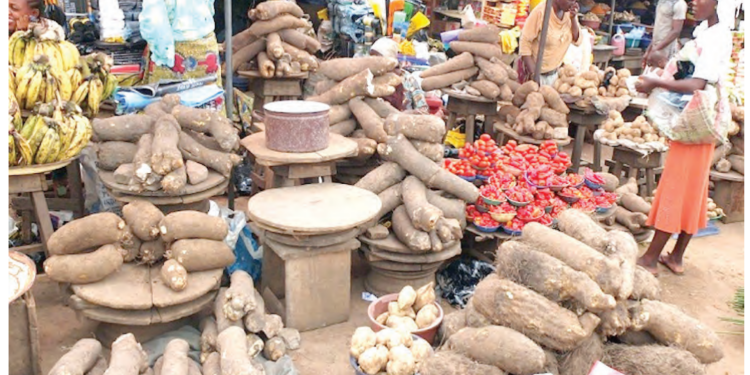Three months after the federal government rolled out an import duty waiver scheme on food items to address the country’s growing food insecurity, the scheme has failed to take off.
The scheme, designed to make essential food items more affordable and stabilise rising prices, has yet to benefit a single importer or company.
Industry stakeholders have cited overly stringent guidelines as the primary reason for its failure.
The government announced the implementation of the import duty waiver programme on July 15, 2024, and the plan was that it would run through December 31, 2024.
It was designed to make essential food commodities more affordable, alleviating Nigeria’s severe food security challenges.
With inflation rates hitting record highs—32.15 per cent, especially in the food sector—the waiver scheme was expected to reduce the cost of importing essential food commodities.
The food commodities include maize, husked brown rice, wheat, grain beans, and millet.
The idea was simple: remove or significantly reduce import duties and Value-Added Tax (VAT) to encourage an inflow of food imports and drive down consumer prices.
The programme was meant to help cushion the effects of various factors contributing to food scarcity and price hikes in the country.
These include the impact of climate change on local food production, insecurity in agricultural regions, and the depreciating value of the naira, which has made imported goods more expensive.
The government expressed the hope that the waiver would reduce the cost burden on importers, leading to lower retail prices and ensuring that the average Nigerian could afford essential food items.
However, this objective has yet to be achieved three months into the programme.
The Federal Ministry of Finance must be more forthcoming with reasons for the programme’s non-performance,
Two weeks after this reporter contacted Mohammed Manga, the ministry’s director of information, for an update on the implementation process, including the number of importers that have access to the service, he replied with: “Forwarded na, please,” and refused to make further comments.
According to industry insiders, the scheme’s failure lies in the government’s overly complex and restrictive conditions for importers to qualify for the waivers.
Stakeholders who pleaded anonymity for fear of victimisation by the government have expressed frustration at the numerous hurdles imposed by the regulatory agencies.
Many of these guidelines are seen as impractical, especially in the current economic climate, making it almost impossible for companies to meet the eligibility criteria.
For example, one essential condition requires importers to provide extensive documentation proving that the imported goods are not readily available in sufficient quantities within Nigeria.
While the policy aims to protect local farmers and industries, critics argue that this requirement is unnecessary, as it fails to account for the current food shortages and supply gaps.
A senior officer in the Nigeria Customs Service who asked not to be named also dismissed the guidelines as “too stringent” for any importer to meet.
“Have you not also looked at the guidelines? Which importer do you think would want to stick his head to that?” he retorted.
The guidelines were issued by the finance minister and coordinating minister of the economy, Mr Wale Edun, in a letter to customs.
Additionally, importers must demonstrate that their businesses fully comply with all tax obligations, present environmental impact assessments, and navigate a maze of approvals from multiple government bodies before even being considered for the waiver.
These bureaucratic obstacles have made the process slow and frustrating. The imposed order has yet to qualify for the waiver in the three months since the programme’s launch.
“The guidelines are simply too stringent. We understand the government’s intention to ensure only genuine importers benefit from the waivers. Still, these conditions are not feasible for most businesses in the current economic environment,” said an importers’ association representative.
In response to the criticism, the Nigeria Customs Service has maintained that it is not responsible for the scheme’s failure but is instead following the directives issued by the federal government.
The NCS has stated that it can only act on the list of qualified importers provided by relevant ministries and agencies responsible for overseeing the waiver scheme.
However, according to a source in the customs department, no such list has been produced to date.
The finance ministry is supposed to provide the list of importers and approved quotas during the implementation period and call for comprehensive coverage to ensure strict compliance.
NCS spokesperson Abdullahi Maiwada said the service would immediately work with the list of importers who have met the conditions set for the duty waiver. “Until that happens, we are not in a position to grant any waivers.”
This response further highlights the bureaucratic challenges hindering the success of the programme.
The failure of the import duty waiver programme is not just a disappointment for importers but also a missed opportunity for the Nigerian economy at large.
Food insecurity remains a significant issue, with millions of Nigerians unable to afford essential food items.
Had the programme succeeded, it could have provided much-needed relief by increasing the supply of essential goods and driving down prices in local markets.
Lower food prices would have also helped reduce inflation, primarily fuelled by the high cost of food.
With inflation currently above 20%, reducing food prices could have a ripple effect across other sectors, stabilising the economy and alleviating household financial pressure.
Moreover, the waiver scheme was intended to create a more competitive market for food imports, with importers able to bring in goods at lower costs and pass those savings on to consumers.
This would have also reduced Nigeria’s dependence on smuggled food items, often evading taxes and customs duties, creating unfair competition for legitimate businesses.



